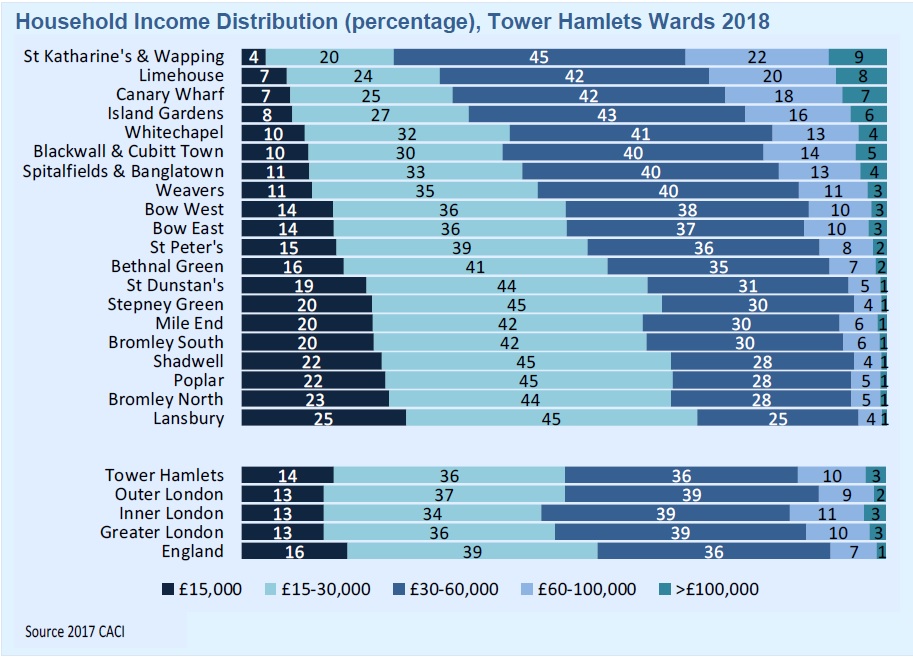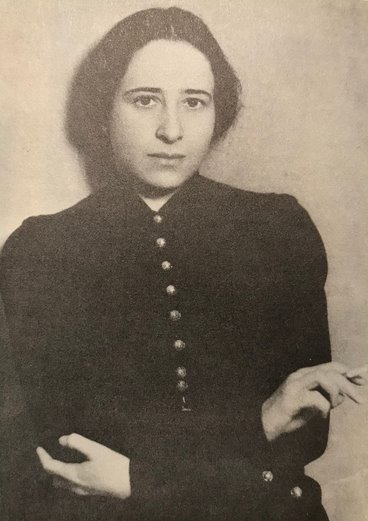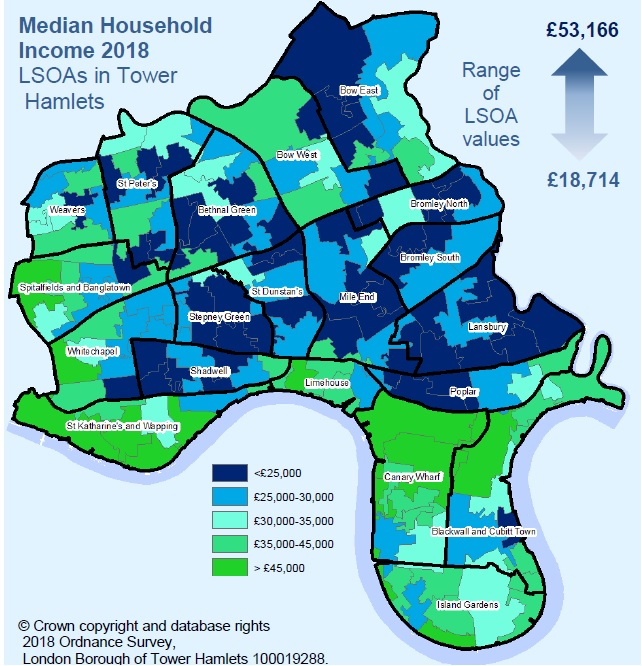Democracy in Tower Hamlets, according to the Council Constitution is prefaced on a contract between elected representatives and the ordinary residents. It is prefaced on the basis that there is some nice unified community that agrees to set up this constitutional contract. In reality there is no such unity. There are those who are well off and being able to articulate their wants, and then there is the ‘statistically invisible’ poor, due to economic barriers unable to fully participate in the representative political process. Usually they are not consulted when decisions are made, and are told: “We agreed upon this”. So while it may sound good that rights and liberty will be protected by the Council Constitution, in reality it is the rights and liberty of the wealthy and powerful that is most likely to be protected.
This is reflected in the high levels of inequality we have in Tower Hamlets, where as a borough we are one of the richest in the United Kingdom, but yet nearly half of our children grow up in poverty. For example in my ward, in Mile End, one in 5 families earn less than £15,000 per annum, where the median income for Tower Hamlets as a whole is nearly £30,000.
Tony Benn, once a speech, said there is a direct correlation between material well being of ordinary folks and the advance of democracy. However in recent times, mainstream politics no longer taps into these issues and has abandoned the attempt to provide a shared vision capable of inspiring us to create a better society. As voters we have lost sight of any collective belief that society could be different. Instead of a better society, the only thing almost everyone strives for is to better their own position – as individuals – within the existing society.

Hannah Arendt, a 20th century political philosopher, known for her famous works. ‘The Origins of Totalitarianism’ and ‘Eichmann in Jerusalem’, was aware of the above flaws in contractual representative government, argued in her book, ‘On Revolution’ for something called “the council system” of making political decisions. Its basis was not voting, but neighbourhood councils all over, with anyone who wanted to join the discussion invited to do so, and then these councils would form a kind of federation to make regional and national decisions. At various points of history there have been brief experiences with the above kind of direct democracy, from ancient Athens, the Paris Commune of 1871, to Barcelona during the Spanish Civil War.
It is with the above idea of instituting a more direct democracy, that the People’s Budget is proposed, initially using the model of a Citizens Jury as an interim measure, to eventually establishing networks in neighbourhoods and estates for a fully participatory budgeting model.
Only when we tackle the inequality of political decision making in Tower Hamlets, can we really tackle the high levels of economic inequalities we have in this borough. Through a more equalising decision making process, we can envisage a Tower Hamlets who’s wealth that is for the many and not the few.

“As citizens, we must prevent wrongdoing because the world in which we all live, wrong-doer, wrong sufferer and spectator, is at stake.”


Recent Comments